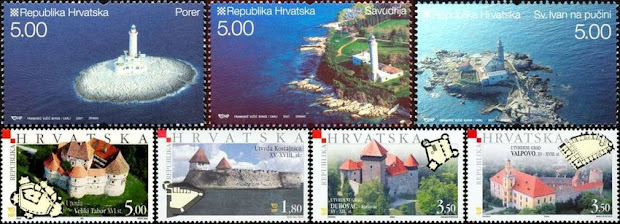On 17 May Croats will go to the polls in local elections. To inform myself, I checked the main newspaper websites and TV stations. Surprisingly, it is Nova TV's website (a commercial station) that offers the most extensive information on the local elections. Their news program, Dnevnik, is usually rather sensational and focuses almost exclusively on Croatian affairs, in which respect it resembles Croatian newspapers. None of the newspapers nor state run public television HRT has a site about the elections.
 In Osijek, Croatia's fourth largest city, the main candidates competing for the position of mayor belong to the right or extreme right. Krešimir Bubalo is leading the polls. Bubalo is a member of the HDSSB party, led by Branimir Glavaš who is charged with war crimes. His main opponent is Anto Đapić, who belongs to the HSP, a party known for its strong anti-Serb attitude.
In Osijek, Croatia's fourth largest city, the main candidates competing for the position of mayor belong to the right or extreme right. Krešimir Bubalo is leading the polls. Bubalo is a member of the HDSSB party, led by Branimir Glavaš who is charged with war crimes. His main opponent is Anto Đapić, who belongs to the HSP, a party known for its strong anti-Serb attitude.
Another interesting city to watch is Split, Croatia's second by size. In Split entrepreneur and independent candidate Željko Kerum is leading the polls. In national elections Split was firmly controlled by the governing HDZ party of prime minister Sanader, himself a son of Split and great fan of football club Hajduk. Kerum's political independence is part of a wider trend in Croatia towards non-aligned candidates for political posts.
Then, of course, there are the usual outsiders and irregularities. In Kaštela, a small town not far from Split, former porn star Lidija Šunjerga runs for the office of mayor. Her campaign is centered around gender equality and environmental protection. More worrying are reports about manipulation of the number of registered voters. Dusina, a tiny village in the Dalmatian hinterland, counts a total of 530 voters of which 404 are registered at the same address. You would need a skyscraper of 35 stories to accommodate so many voters at one and the same address, the paper Novi list calculated. In Zadar, 19 voters are registered at the address of a two-story house.
The political blog Pollitika launched a site where you can check how many voters are registered at a certain address. By looking up addresses and seeing the number of registered voters, Pollitika wants to map (literary) irregularities. This evening a television program on Nova TV will be dedicated to electoral manipulation, so Pollitika's map should get more details.
 In Osijek, Croatia's fourth largest city, the main candidates competing for the position of mayor belong to the right or extreme right. Krešimir Bubalo is leading the polls. Bubalo is a member of the HDSSB party, led by Branimir Glavaš who is charged with war crimes. His main opponent is Anto Đapić, who belongs to the HSP, a party known for its strong anti-Serb attitude.
In Osijek, Croatia's fourth largest city, the main candidates competing for the position of mayor belong to the right or extreme right. Krešimir Bubalo is leading the polls. Bubalo is a member of the HDSSB party, led by Branimir Glavaš who is charged with war crimes. His main opponent is Anto Đapić, who belongs to the HSP, a party known for its strong anti-Serb attitude.Another interesting city to watch is Split, Croatia's second by size. In Split entrepreneur and independent candidate Željko Kerum is leading the polls. In national elections Split was firmly controlled by the governing HDZ party of prime minister Sanader, himself a son of Split and great fan of football club Hajduk. Kerum's political independence is part of a wider trend in Croatia towards non-aligned candidates for political posts.
Then, of course, there are the usual outsiders and irregularities. In Kaštela, a small town not far from Split, former porn star Lidija Šunjerga runs for the office of mayor. Her campaign is centered around gender equality and environmental protection. More worrying are reports about manipulation of the number of registered voters. Dusina, a tiny village in the Dalmatian hinterland, counts a total of 530 voters of which 404 are registered at the same address. You would need a skyscraper of 35 stories to accommodate so many voters at one and the same address, the paper Novi list calculated. In Zadar, 19 voters are registered at the address of a two-story house.
The political blog Pollitika launched a site where you can check how many voters are registered at a certain address. By looking up addresses and seeing the number of registered voters, Pollitika wants to map (literary) irregularities. This evening a television program on Nova TV will be dedicated to electoral manipulation, so Pollitika's map should get more details.





0 reacties:
Post a Comment